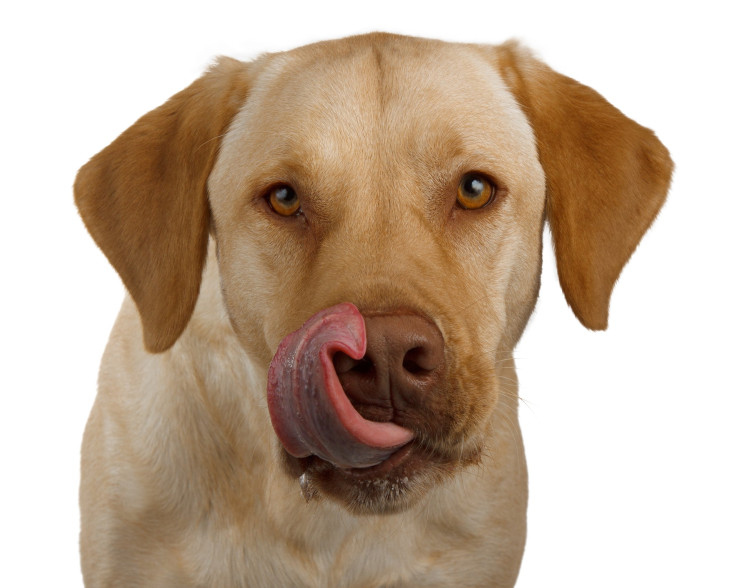Dog Lick Kills Grandmother, As Deadly Infection Invades Her Bloodstream

Most people don’t think much when their pets give them an affectionate lick, but unfortunately for Sheena Kavanagh, the seemingly harmless lick proved to be a kiss of death. Kavanagh, from the UK, died after her pet terrier licked her hand. The lick introduced bacteria into a small cut on Kavanagh, and without a spleen to fight the infection, the 53-year-old quickly died.
Although Kavanagh’s story is extremely rare and most of us are not going to die from a dog’s lick, it does give us a startling reminder of just how many unpleasant bacteria live in the saliva of man’s best friend. In April, when Kavanagh was rushed to the hospital for symptoms attributed to septic shock, doctor’s suspected the mother of two had meningitis, The Telegraph reported. The grandmother was prescribed antibiotics to fight the infection but unfortunately passed away the following night.
Baffled at what could have killed Kavanagh so quickly, an inquest was ordered to help determine cause of death. It wasn’t until doctors learned that Kavanagh did not have a spleen, an organ that helps to fight infections, when the pieces of the puzzle began to fall into place. Capnocytophaga canimorsus, a normally harmless organism found in dog and cat saliva, was found in abundance in Kavanagh’s blood. “In people without a spleen it can cause death due to septic shock. But it is extremely rare,” explained Dr. Hiam Ali, a pathologist who had handled Kavanagh’s bloodwork. The point of entry was determined to be a “very small” cut on Kavanagh’s hand.
Our spleens play an important part in purifying blood. This helps the immune system to recognize and attack foreign antibodies and disease, such as the canine derived bacteria found in Kavanagh’s blood. The patient’s spleen was removed following an assault 26 years earlier, and as protocol with individuals who had undergone a splenectomy, Kavanagh took antibiotics twice a day. “She had antibiotics [in the hospital], which worked on the bacteria, but unfortunately the damage was already done. Her blood was full of bacteria and organisms,” Ali said. The cause of death was listed as “splenectomy and dog saliva in the bloodstream.”
Wound licking is an instinctive trait found in many animals, even humans. There are properties in most animals' saliva that are found to speed up the healing process. However, as this story shows, these healing bacteria live alongside the many other potentially harmful bacteria in our pets’ mouths. Kavanagh is not the first individual to have died from a Capnocytophaga canimorsus infection. In 2012, an Atlanta woman died from the infection after a two-month-long battle. Another woman from Texas lost her life to the infection.
The bacteria is not found in all dogs' mouths and is usually not dangerous, but still, as Dr. Scott Weese of the Veterinary College’s Centre for Public Health and Zoonoses explained in his blog, “The oral cavity of the dog contains billions of bacteria from hundreds of different bacterial species. Many of these are able to cause infection given the right circumstances.” It's best to let Fido lick his own wounds and stick to human healing agents for yours.



























